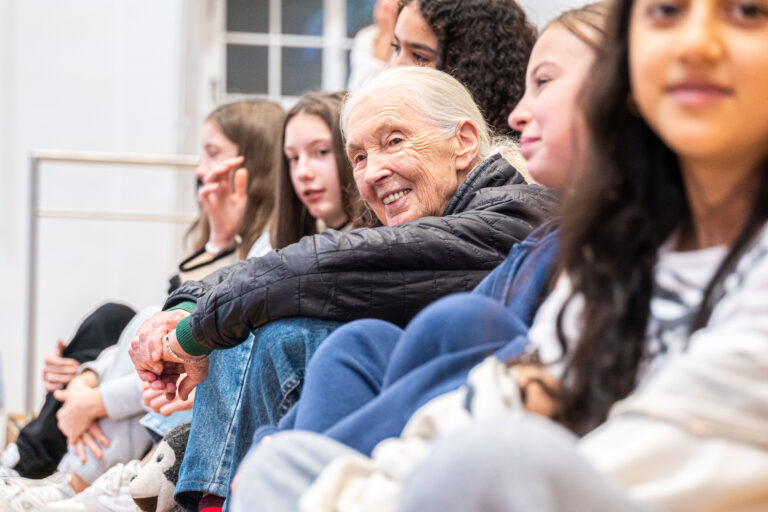Dr. Jane Goodall, DBE, lived a long, unique, and fulfilling life, dedicated to the work she was so passionate about, and surrounded by so many who loved her. She inspired hope for countless individuals around the globe, and through her advocacy for animals, people, and the environment, she left a lasting impact the world will never forget. On Wednesday, October 1, it was announced that Dr. Jane Goodall had passed away at the age of 91.
For some children and young people, dealing with her loss may be upsetting and difficult. We have prepared this guide with input from Dr. Mehmet Cevdet Tosyalı, MD with the goal of helping children and young people and the adults working with them through this grief process. Dr. Tosyalı is a child, adolescent, and adult psychiatrist who has been in practice for more than 30 years and has held teaching positions at Columbia University, New York University, and Albert Einstein University. He is currently in practice in New York City.
Dr. Tosyalı is a longtime friend and supporter of Roots & Shoots, and in addition to advising us in the creation of this guide, he also prepared the videos below to help young people and their mentors through their grief.
Grief advice for young people:
Grief advice for adult mentors:
Supporting Each Other Through Grief
Grief is a natural process, and everyone should be allowed to experience and deal with it in their own way. It is important to allow people to feel and process their emotions at the same time. Some children and young people may want to talk about Dr. Jane’s passing, while others may not. Allow silence if needed. You don’t have to fill the void with words. Give them space to think and reflect, and support them when they are ready to talk. When they are ready, here are some suggestions that may be helpful:
How to Talk to a Grieving Child
Children process loss differently, and supporting them through grief requires patience and understanding. Here are some ways to approach the conversation:
Ask open-ended questions: “What’s going on? What are you feeling?”
Acknowledge their emotions: “I’m sorry. How are you feeling? Is there anything I can do to help you with your emotions?”
Don’t be afraid to discuss death: “What do you think happened to Jane?” This can be an opportunity to talk about life and loss in a gentle way.
Encourage creativity to explore their emotions: “Would you like to draw a picture or write a story about Jane?”
Acknowledge their emotions while helping them to move on: “It’s okay to feel sad, but let’s think about something Jane would have liked. Would you like to watch a wildlife movie or go outside and observe nature?”
Make sure they have all the information they need: Ask them if they have any questions about her death, and try to answer them as accurately as possible using reliable information.
Possible Grief Reactions in Children
Grief does not follow a linear path, and different reactions may emerge over time. Here are some common grief responses:
Emotional Reactions:
- Fear, sadness
- Withdrawal
- Difficulty concentrating
- Insomnia or loss of appetite
- Clinging to caregivers
- Anger or frustration
Physical Symptoms:
- Stomach aches
- Headaches
- Nightmares or difficulty sleeping
Social Reactions:
- Becoming quiet
- Avoiding friends, activities, or school
Behavioral Reactions:
- Lack of concentration
- Refusal to go to school
These reactions are a normal part of the grieving process. It is important to support children and young people as they navigate through this experience. However, if these reactions persist beyond 3-4 months and significantly impact daily life, seeking professional support may be necessary.
Some Ideas to Support the Grief Process
Identifying with a person we lose is one way of dealing with grief. As is the case with Dr. Jane, when this person is a positive, admired figure, this mechanism may be particularly useful. Thus rather than simply remembering Dr. Jane, taking action, continuing her work, following her beliefs, and spreading her message can help the grief process. We can help process these emotions by asking, “Can we do something that would make us feel better — something Jane would have liked?”
Tell Her Story Through Words: Write a story, poem, or even a short play about Jane’s adventures and achievements. You could describe a defining moment in her life, imagine a conversation with her, or craft a heartfelt poem reflecting her love for nature and animals. You might even write from the perspective of a chimpanzee, a tree, or another part of the natural world she worked to protect.
Draw a Picture of Jane: Celebrate her life and work through art. If drawing isn’t your strength, consider creating a collage, sculpture, or another form of creative expression to honor her legacy.
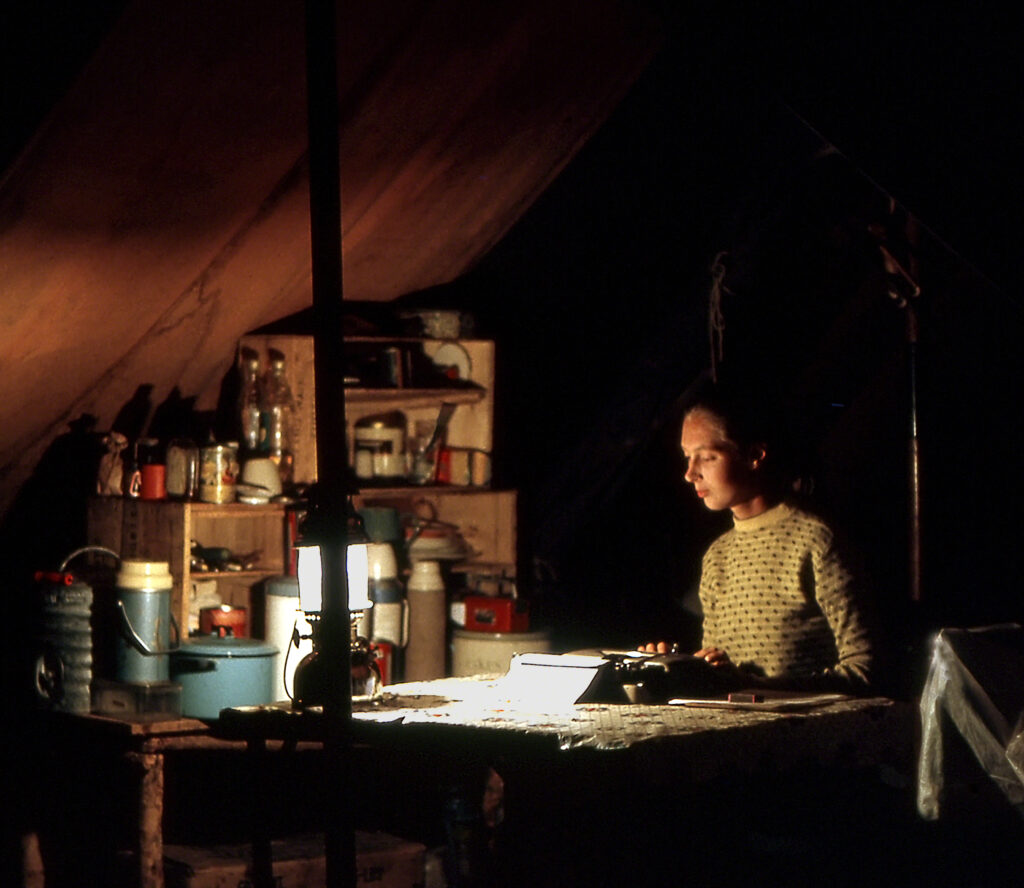
Create a Memory Journal: Dedicate a notebook or digital space to record your thoughts, feelings, and memories of Jane.
Write about how she inspired you, moments when her words or actions made a difference in your life, or the values she instilled in you. You can also include quotes from her speeches, reflections on her books, or sketches that remind you of her work.
Share Her Story: Celebrate Dr. Jane’s life and impact by organizing a gathering, event, or online tribute. This could be a small in-person meeting where people share stories, a virtual event featuring videos and discussions about her work, or a social media campaign where you post about her achievements and invite others to share how she influenced them.
Host a Book Club: Gather friends and family to read and discuss one of her books. Choose a title that resonates with her work, and encourage participants to share their thoughts, favorite passages, and how they feel inspired to take action.
Spend Time in Nature: Honor Dr. Jane’s deep love for the natural world by immersing yourself in it.
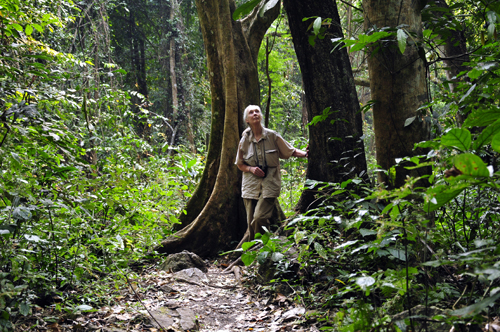
Take a quiet walk in a forest, observe wildlife, listen to birds, or simply sit under a tree and reflect. You could also visit a local park, go on a hike, or even plan a small outdoor gathering where people share their favorite nature experiences. Take a moment to appreciate the beauty and interconnectedness of life, just as she did.
Practice Kindness and Compassion: Jane believed in the power of kindness — not only toward people, but also toward other animals and the environment. In her honor, commit to acts of kindness in your daily life. This could be as simple as helping a neighbor, supporting a conservation effort, rescuing an injured animal, or reducing waste to lessen your impact on the planet. Small, thoughtful actions can create ripples of positive change, just as Jane showed us throughout her life.
Start a small project in her name: Whether it’s a local nature cleanup, an awareness campaign, a bug hotel, bird nest or an educational initiative, take action in a way that reflects her values. No action is too small — what matters is carrying forward Dr. Jane’s mission of protecting the planet and inspiring others to do the same.
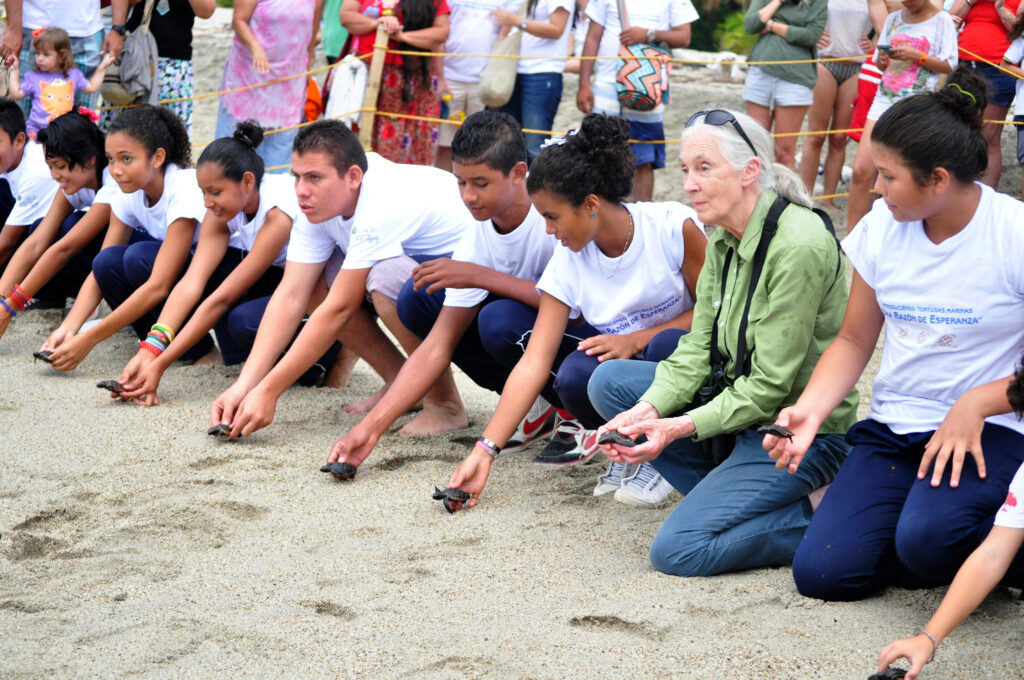
Ask Yourself, “What Would Jane Do?” — Then Take Action: Whenever you face a decision — big or small — pause and ask yourself, “What would Jane do?”
Would she protect an animal in need? Speak up for the environment? Educate others about conservation? Let this simple question guide your choices, whether it’s reducing plastic use, treating others with kindness, or standing up for what’s right. By embodying Jane’s values in everyday life, we keep her legacy alive in the most meaningful way.
Social Media and Grief
While social media cannot be avoided, it is important to let children and young people know that they can talk about their feelings at any time. If they feel overwhelmed by what they see online, they should be encouraged to seek support from a trusted person.
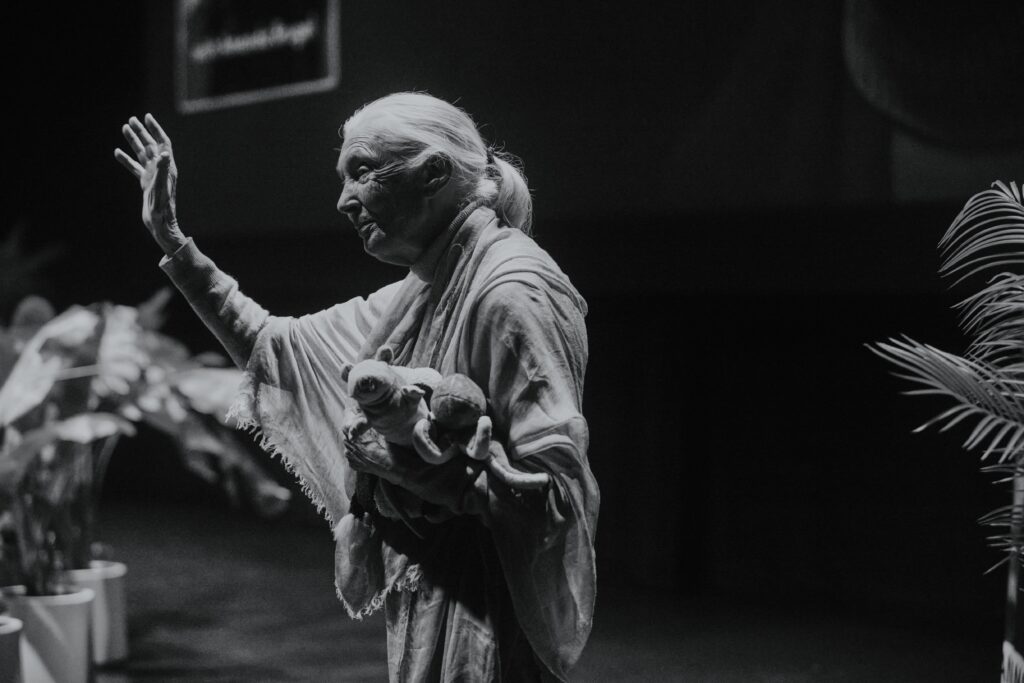
Dr. Jane’s passing is a profound loss. The depth of the grief we experience is often seen as directly related to the depth of the love we felt for someone we have lost but with the passage of time, rather than focusing solely on our grief, we can honor Dr. Jane by continuing the work to which she devoted her life. As she loved to remind us, “together we can, together we will, together we must change the world!”
To read the official announcement of Jane’s passing, and to help us continue her legacy, please visit our “Remembering Jane” page below.
For further information, you can refer to the 🔗 American Academy of Child and Adolescent Psychiatry on grief and related topics.
We thank Dr. Cevdet Tosyalı, MD, for his support.
Image credits, in order of appearance: JGI Austria, JGI/Hugo van Lawick, Chase Pickering, Roots & Shoots Colombia, Katherine Holland


